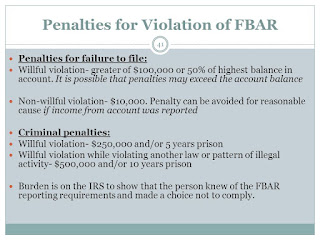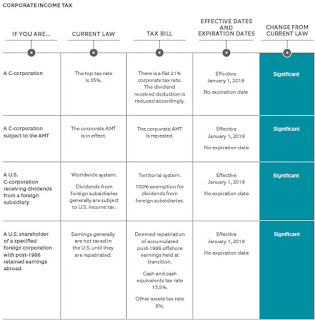The Internal Revenue Service in IR-2019-141 urged taxpayers to resolve their significant tax debts to avoid putting their passports in jeopardy. They should contact the IRS now to avoid delays in their travel plans later.
Under the Fixing America’s Surface Transportation (FAST) Act, the IRS notifies the State Department (State) of taxpayers certified as owing a seriously delinquent tax debt, which is currently $52,000 or more. The law then requires State to deny their passport application or renewal. If a taxpayer currently has a valid passport, State may revoke the passport or limit a taxpayer’s ability to travel outside the United States.
When the IRS certifies a taxpayer to State as owing a seriously delinquent tax debt, the taxpayer receives a Notice CP508C from the IRS. The notice explains what steps the taxpayer needs to take to resolve the debt. IRS telephone assistors can help taxpayers resolve the debt. For example, they can help taxpayers set up a payment plan or make them aware of other payment options. Taxpayers should not delay because some resolutions take longer than others.
Don’t Delay!
It’s especially important for taxpayers with imminent travel plans who have had their passport applications denied by State to call the IRS promptly. The IRS can help taxpayers resolve their tax issues and expedite reversal of their certification to State. When expedited, the IRS can generally shorten the 30 days processing time by 14 to 21 days. For expedited reversal of their certification, taxpayers will need to inform the IRS that they have travel scheduled within 45 days or that they live abroad.
For expedited treatment, taxpayers must provide the following documents to the IRS:
- Proof of travel. This can be a flight itinerary, hotel reservation, cruise ticket, international car insurance or other document showing location and approximate date of travel or time-sensitive need for a passport.
- Copy of letter from State denying their passport application or revoking their passport. State has sole authority to issue, limit, deny or revoke a passport.
The IRS may ask State to exercise its authority to revoke a taxpayer’s passport. For example, the IRS may recommend revocation if the IRS had reversed a taxpayer’s certification because of their promise to pay, and they failed to pay. The IRS may also ask State to revoke a passport if the taxpayer could use offshore activities or interests to resolve their debt but chooses not to.
Before contacting State about revoking a taxpayer’s passport, the IRS will send Letter 6152, Notice of Intent to Request U.S. Department of State Revoke Your Passport, to the taxpayer to let them know what the IRS intends to do and give them another opportunity to resolve their debts . Taxpayers must call the IRS within 30 days from the date of the letter. Generally, the IRS will not recommend revoking a taxpayer’s passport if the taxpayer is making a good-faith attempt to resolve their tax debts.
Ways to Resolve Tax Issues
There are several ways taxpayers can avoid having the IRS notify State of their seriously delinquent tax debt. They include the following:
- Paying the tax debt in full,
- Paying the tax debt timely under an approved installment agreement,
- Paying the tax debt timely under an accepted offer in compromise,
- Paying the tax debt timely under the terms of a settlement agreement with the Department of Justice,
- Having a pending collection due process appeal with a levy, or
- Having collection suspended because a taxpayer has made an innocent spouse election or requested innocent spouse relief.
Relief programs for unpaid taxes
Frequently, taxpayers qualify for one of several relief programs including the following:
- Payment agreement. Taxpayers can ask for a payment plan with the IRS by filing Form 9465. Taxpayers can download this form from IRS.gov and mail it along with a tax return, bill or notice. Taxpayers who are eligible can use the Online Payment Agreement system to set up a monthly payment agreement. Using the Online Payment Agreement system is cheaper and can save time.
- Offer in compromise. Some taxpayers may qualify for an offer in compromise, an agreement between a taxpayer and the IRS that settles the tax liability for less than the full amount owed. The IRS looks at the taxpayer’s income and assets to determine the taxpayer’s ability to pay. Taxpayers can use the Offer in Compromise Pre-Qualifier tool to help them determine whether they’re eligible for an offer in compromise.
Subject to change, the IRS also will not certify a taxpayer as owing a seriously delinquent tax debt or will reverse the certification for a taxpayer:
- Who’s in bankruptcy,
- Who’s identified by the IRS as a victim of tax-related identity theft,
- Whose account the IRS has determined is currently not collectible due to hardship,
- Who’s located within a federally declared disaster area,
- Who has a request pending with the IRS for an installment agreement,
- Who has a pending offer in compromise with the IRS, or
- Who has an IRS accepted adjustment that will satisfy the debt in full.
For taxpayers serving in a combat zone who owe a seriously delinquent tax debt, the IRS postpones notifying the State Department of the delinquency and the taxpayer’s passport is not subject to denial during the time of service in a combat zone.

The IRS Will Reverse The Certification Within 30 Days Of Resolution Of The Issue And Provide Notification To The State Department As Soon As Practicable.
Travel
Read more at: Tax Times blog

















